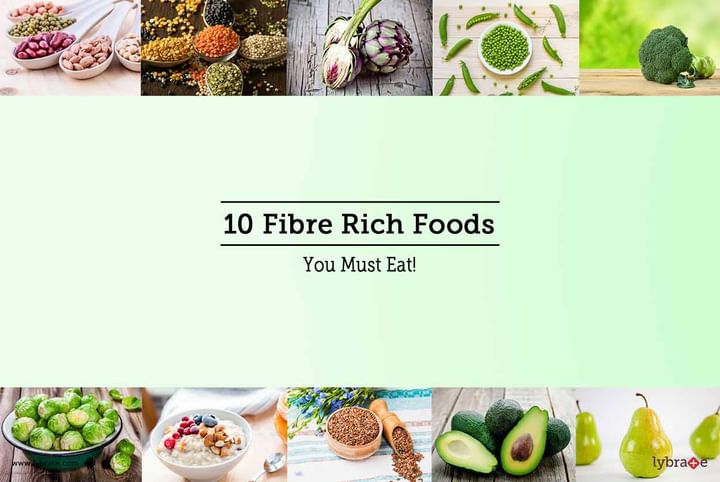10 Fibre Rich Foods You Must Eat!
Fibre is crucial for proper digestion and 85 % immunity of the human body is due to digestion alone. Scientists have recently concluded after years of study that the human brain and gut are indeed connected. This leads us to the question whether we are looking after our guts to stay healthy and fit for years to come?
Consider modern diets have left millions worldwide with deficiency of fibre. And, this is really alarming because high - fibre foods help to guard against cancer, heart disease, kidney stones, PMS, obesity and diabetes.
Fibre comes in two varieties- soluble and insoluble. Soluble fibre turns to gel in the stomach, slowing digestion, which helps lower cholesterol and blood sugar. Insoluble fibre remains untouched all the way to the large intestine aiding in proper evacuation of the GI tract. Since fibre is never absorbed into the body, you have to eat sufficient quantities of it every day. Experts suggest that you need 25-38 gm of fibre each day in your diet. But how do you get this amount?
Here are a list of 10 high- fibre foods for jacking-up fibre content
- Legumes like split peas or ‘dals’: Fibre content - 163.3g per cup. Eaten as a staple food in India, split peas are full of proteins and fibre. They can be had in soup, stewand and dal form.
- Lentils like quinoa: Fibre content - 15.6g per cup. They are also a good source of protein, iron, folate, manganese and phosphorous.
- Artichokes: Fibre -10.3 10.3g per medium vegetable. The reservoir of vitamins A, C, E, B, K, potassium, calcium, magnesium and phosphorous, Artichokes are one of the top highest antioxidant foods.
- Peas: Fibre - 88.8g per cup. They are also filled with protein, Omega-3s, vitamins and folates and contain insoluble fibre.
- Broccoli: Fibre -5.1 5.1g per cup. A power packed cruciferous vegetable, full of anti-oxidants.
- Brussels sprouts: Fibre -4.1 4.1g per cup. Contains balance of soluble and insoluble fibre apart from nutrients like vitamins C, K, B1, B2, B6, folate and manganese.
- Oatmeal: Fibre 4g per cup. Great for breakfast with milk!
- Flax seeds: Fibre -3 3g per tablespoon. Tonnes of nutrients are packed in the humble flax seeds. They contain protein, thiamine, manganese, phosphorus, magnesium, copper, Omega-3 fatty acids and fibre. They reduce cholesterol and help ease symptoms of menopause.
- Avocados: Fibre 67.7g per half fruit raw. Pack with the goodness of vitamin C, E, B6, folate, vitamin K and potassium. Contain healthy fats that help to lower cholesterol and reduce the risk of heart disease.
- Pears: Fibre - 55.5 g per medium fruit. This fruit contains Omega-6 fatty acids which help keep the cells in brain and nerves healthy. If you wish to discuss about any specific problem, you can consult a dietitian-nutritionist.



+1.svg)
